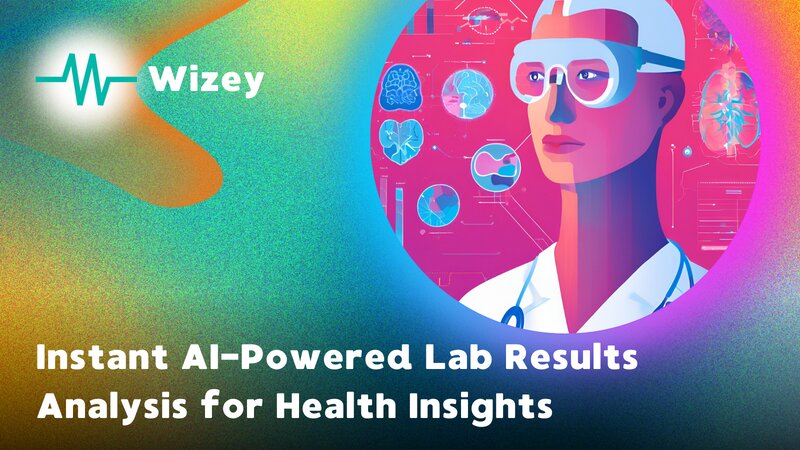🔬 How AI Helps Interpret Medical Tests

Modern artificial intelligence technologies have revolutionized many fields, including medicine. One of the most significant applications of AI in healthcare is helping to interpret medical tests, transforming how we understand our health data.
🧩 The Challenge of Understanding Medical Data
Most people have experienced receiving test results but being unable to properly interpret them due to:
- 📚 Complex medical terminology that requires specialized knowledge
- 🔢 Numerous numerical indicators presented without sufficient context
- 📊 Different reference values used across various laboratories
- 🔄 Lack of understanding of the relationships between different indicators
These challenges can leave patients confused about their health status and unable to take appropriate actions based on their test results.
💡 How AI Solves This Problem
Modern artificial intelligence algorithms offer powerful solutions to these challenges:
- 🔍 Analyze large volumes of data — AI can process millions of medical records to identify patterns and correlations that might not be immediately obvious to human observers
- 👤 Consider individual characteristics — AI systems can take into account age, gender, medical history, and other personal factors to provide more relevant interpretations
- 🗣️ Explain results in plain language — AI can translate complex medical terminology into patient-friendly explanations that are easier to understand
- ⚠️ Identify deviations — AI can quickly determine which indicators fall outside normal ranges and explain their potential significance
- 💬 Offer recommendations — Based on comprehensive data analysis, AI can provide general health recommendations tailored to specific test results
🌟 Benefits of Using AI for Test Interpretation
The integration of AI into medical test interpretation offers numerous advantages:
- 🕒 Accessibility — Patients can get basic interpretations of their test results anytime, without having to wait for a doctor's appointment
- 📝 Clarity — Results are presented in an easy-to-understand format with visual aids and simple explanations
- ⚡ Speed — AI provides instant analysis and interpretation of data, eliminating waiting periods
- 🔄 Comprehensive approach — AI can analyze relationships between various indicators to provide a more holistic view of health status
⚖️ Limitations and Ethical Aspects
It's important to understand that AI doesn't replace doctors but serves as a supplementary tool:
- 🔍 AI doesn't diagnose but helps interpret data
- 👩⚕️ Final decisions should always be made by qualified medical professionals
- 🔒 Medical data confidentiality must be strictly observed
- ⚠️ AI systems must be regularly updated with the latest medical knowledge
"AI in healthcare isn't about replacing human expertise, but about augmenting it. The goal is to give both patients and healthcare providers better tools to make informed decisions."
🔮 The Future of AI in Medicine
Artificial intelligence technologies continue to evolve, and in the future we can expect:
- 📈 Even more accurate interpretation of results through advanced machine learning
- 🧬 Personalized recommendations based on genetic data and biomarkers
- ⌚ Integration with wearable devices for continuous health monitoring
- 🔍 Predictive analysis for early risk detection of diseases
- 🌐 Global standardization of medical test interpretations
Using artificial intelligence to interpret medical tests is an important step toward more accessible and personalized medicine that helps people better understand their health status and make more informed decisions. As these technologies continue to develop, they promise to democratize medical knowledge and empower patients to take a more active role in managing their health.